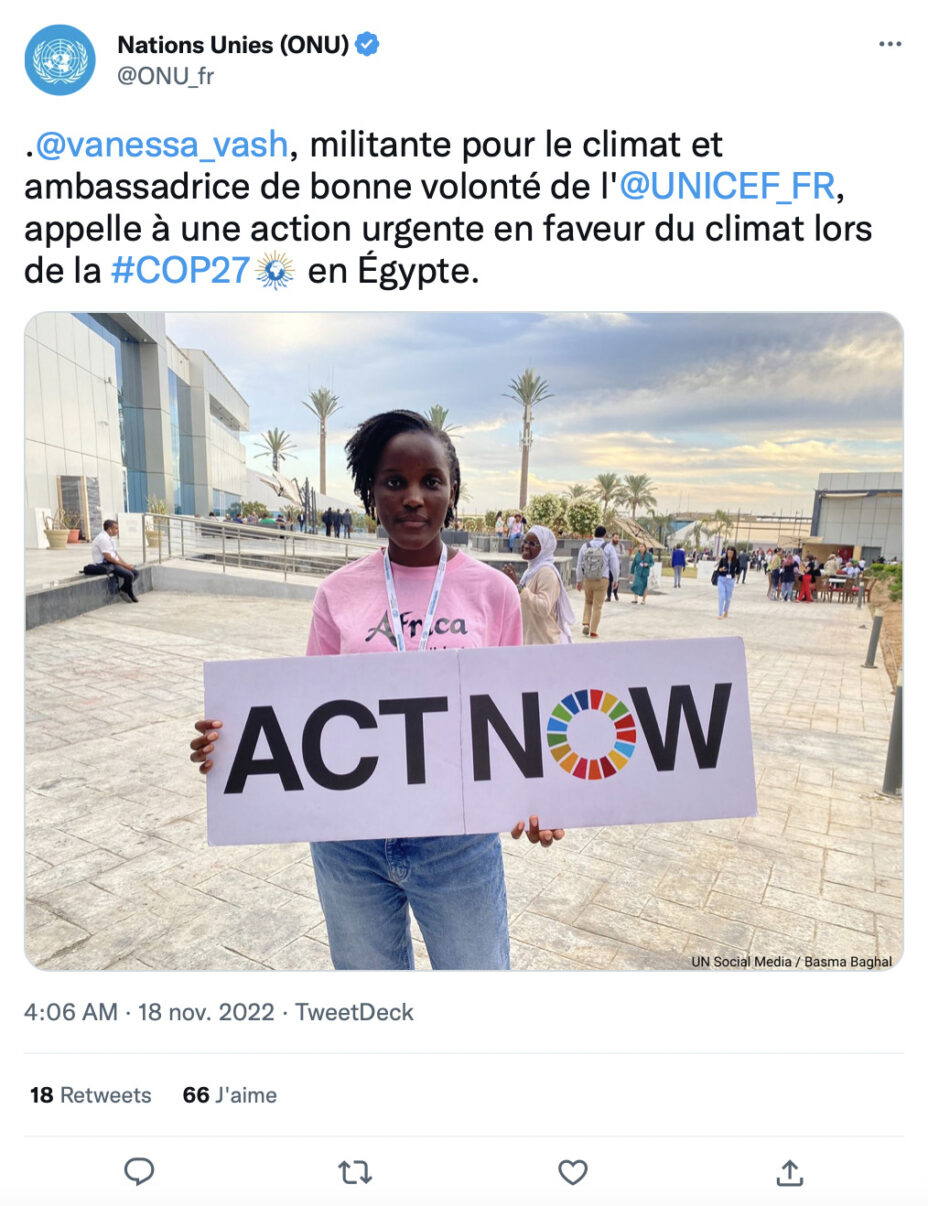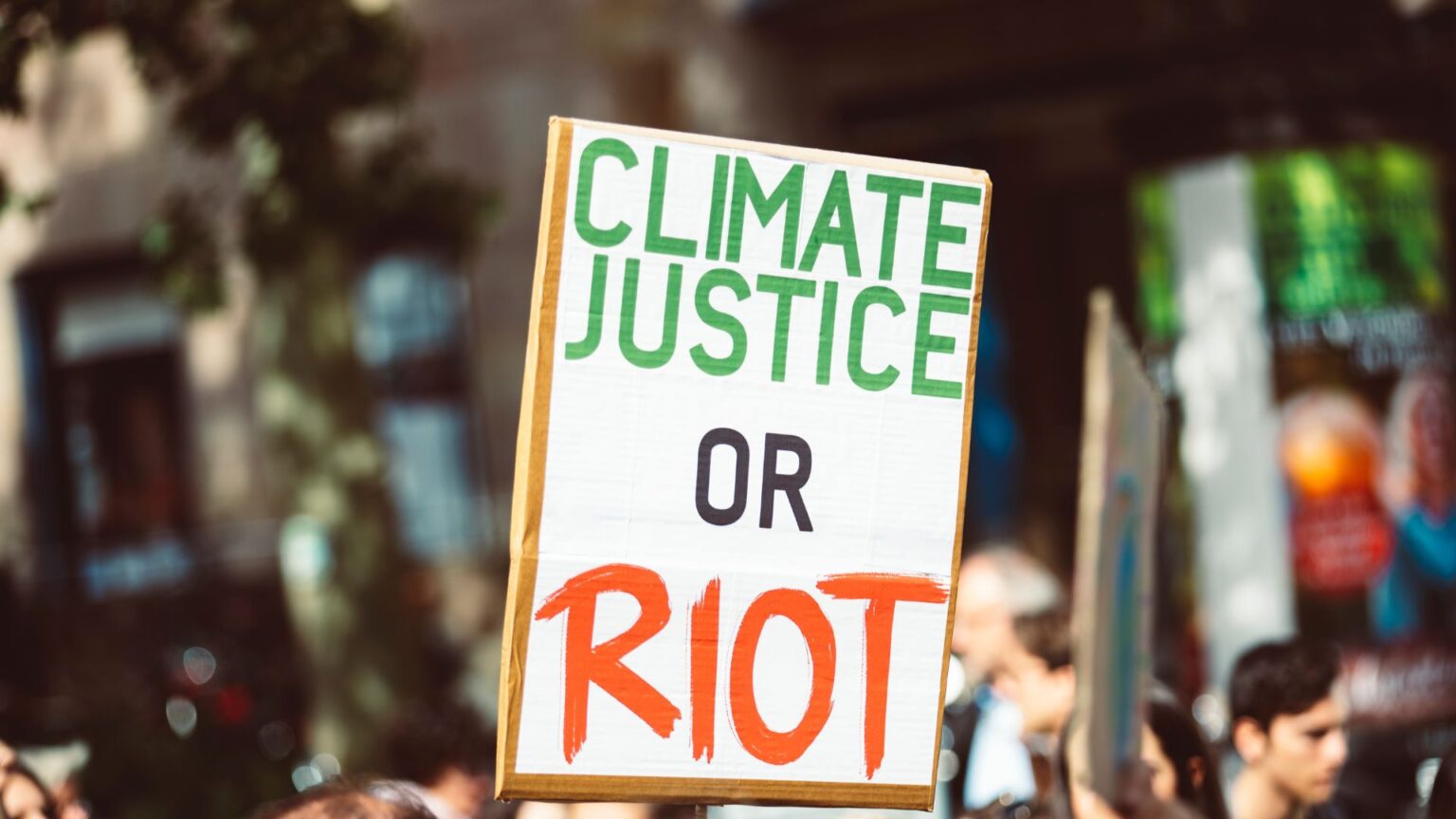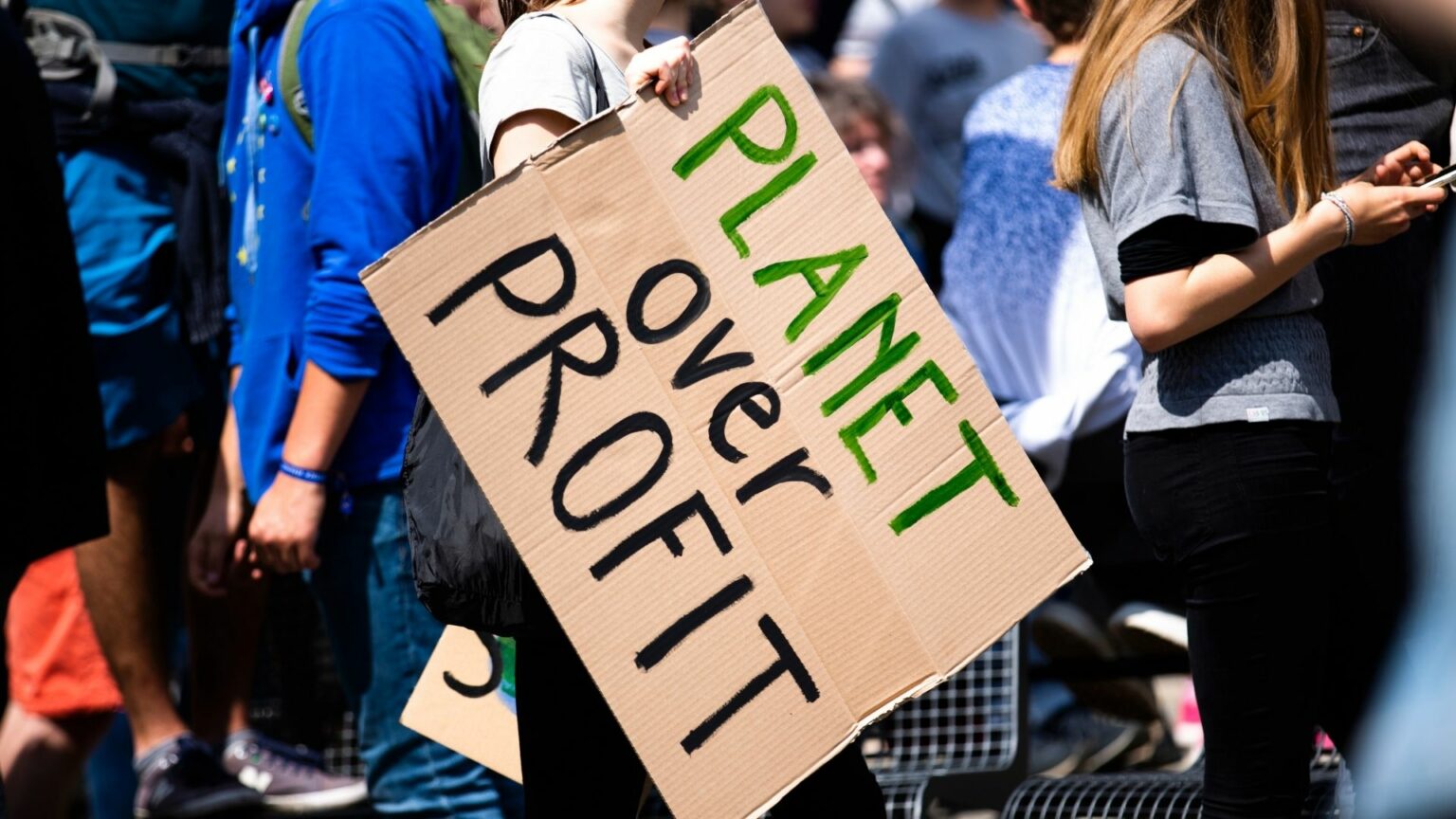“We need women where climate decisions are made. »
We owe this sentence to the young Ugandan environmental activist Vanessa Nakate, and it perfectly illustrates the approach and demands of climate and women’s rights activists during this COP27 which was held in Sharm el-Sheikh in Egypt and which ends this Friday, November 18th.

A far from excessive requirement, given that the statistics speak for themselves: if the number of women within the delegations participating in the COPs has increased over the years, their presence in the national delegations rising from 30% to 38% between 2009 and 2021parity is far from being achieved. “In addition to participation statistics, it was recognized that new arrangements need to be made to assess the quality of women’s participation, including, for example, speaking times”notes the Women’s Environment and Development Organization in its report.
Clearly, women at the negotiating table are fine, but they still need to have a say.

Hardest hit must be the agents of change
In view of the COP 27, the Women and the gender componentone of the nine actors of the United Nations Framework Convention on Climate Change, and the African Feminist Taskforce wanted to take a position on this issue and recall the need to take human rights into account in the fight against global warming. was issued to prioritize the interests of those most affected by global warming.
Because it is no coincidence that women and girls from developing countries are mobilized in these battles: they are the most vulnerable to environmental disasters, from drought to floods, passing through cyclones, and who see their living conditions worsening in times of crisis. According to the United Nations, 80% of climate refugees are women.
An observation that the European Parliament explained in 2012 in a report on women and climate change:
“Differences in living standards, opportunities and education may suggest that gender is not a sufficiently universal factor crucial in the fight against climate change.
And yet, all over the world, women are discriminated against because they are women, and their needs, their aspirations, their opportunities, are more limited and less taken into consideration than those of men. […] Dominated in all sectors, economic, political, social, etc., women have a lower capacity for adaptation and responsiveness to profound changes such as global warming and its consequences. »
Requests from the Women and Gender Constituent and the African Feminist Taskforce are also a way of reminding that African feminist activists did not wait for COP27nor the COPs in general, to mobilize and act to stem the effects of global warming. On the contrary: they are at the forefront of the fight for environmental protection.
The challenge of COP27, a financial agreement to help the weakest
According to a recent report from ActionAid, the damage caused by climate change is causing a vicious circle that reinforces gender inequalities already present. The NGO advocates a gender-based approach to the fight against climate change to promote women’s decision-making, as well as better protection for them, especially financially, to cope with the losses and damages caused by the effects of climate disruption.
And it is precisely the financial agreements on the funds for these losses and damages that must emerge (and are struggling to do so) at the end of this COP27, so that the countries on the front lines of global warming receive compensation to the extent of the damage suffered.
Although the African continent emits significantly lower greenhouse gas emissions than Europe, Asia or North America, and therefore contributes less to global warming, it is also paying a high price, with unprecedented rising waters and droughts that undermine agriculture. The environmentalists of the countries of the South do not fail to underline that the responsibility of the former colonial powers and their exploitation of fossil resources must be weighed in the balance. In its sixth report published in February 2022, the IPCC rightly mentioned, and this was the first time, colonialism and the historical inequalities and injustices between rich and developing countries, making the latter even more vulnerable to the consequences of climate deregulation.

Putting the interests of those who suffer and will suffer the most from these consequences back at the center of the negotiationthis is what Ozawa Bineshi Albert, activist for the environmental cause and the rights of native and indigenous peoples, co-executive director of the Climate Justice Alliance, argued and defended during a Ted Talk in 2021: “We can’t rely on those who created the problem to fix it, we need to act faster and that’s not what’s being done right now, and we need leaders who take the damage to be like the ones who come up with solutions”.
Present at the previous COP in Glasgow, she believes it “Even those who made the program are part of the problem”.

Feminist issues must not be included in the directives that will be announced at the end of COP27: they must be constitutive, at the heart of ambitions so that the environmental fight does not take place at the expense of social justice. And as South African queer feminist activist Zukiswa White reminded us ahead of this COP, time is running out:
“As the world changes on all fronts, we must assert our place and insist that our voices, our experiences, our responsibilities are taken with the seriousness they deserve. At COP27 and beyond, this is what African women and girls will do. We demand African ecofeminist climate justice in our life, that is now. We can no longer ask. »
On Monday 14 November, during COP27, a Gender Day was held, dedicated to the rights of women and gender minorities. An opportunity for Sima Bahous, Executive Director of UN-Women, to share three major recommendations in favor of women’s rights: take special measuresincluding quotas, to increase women’s and girls’ full, equitable and meaningful participation and leadership positions at all levels of decision-making, support a just transition of women to an alternative development modeland finally that the COP’s decisions on investment, especially for women and girls in developing countries, promote women’s knowledge, skills and resilienceand ensure their organizations are supported and protected.
While negotiations between the 196 COP27 participating States to find agreements have to be concluded, Will they be taken into consideration? ?
Photo credit: Alisdare Hickson via Flickr
Source: Madmoizelle
Elizabeth Cabrera is an author and journalist who writes for The Fashion Vibes. With a talent for staying up-to-date on the latest news and trends, Elizabeth is dedicated to delivering informative and engaging articles that keep readers informed on the latest developments.




